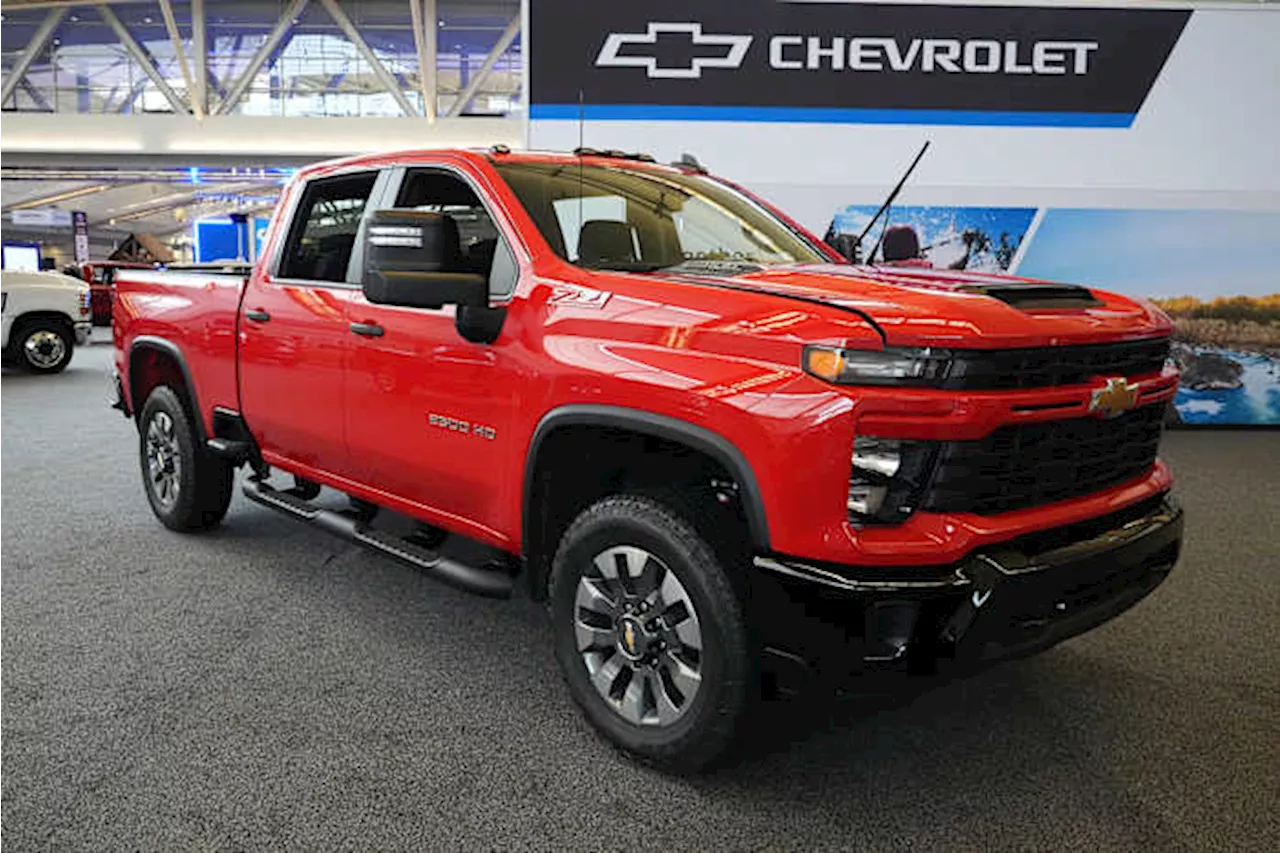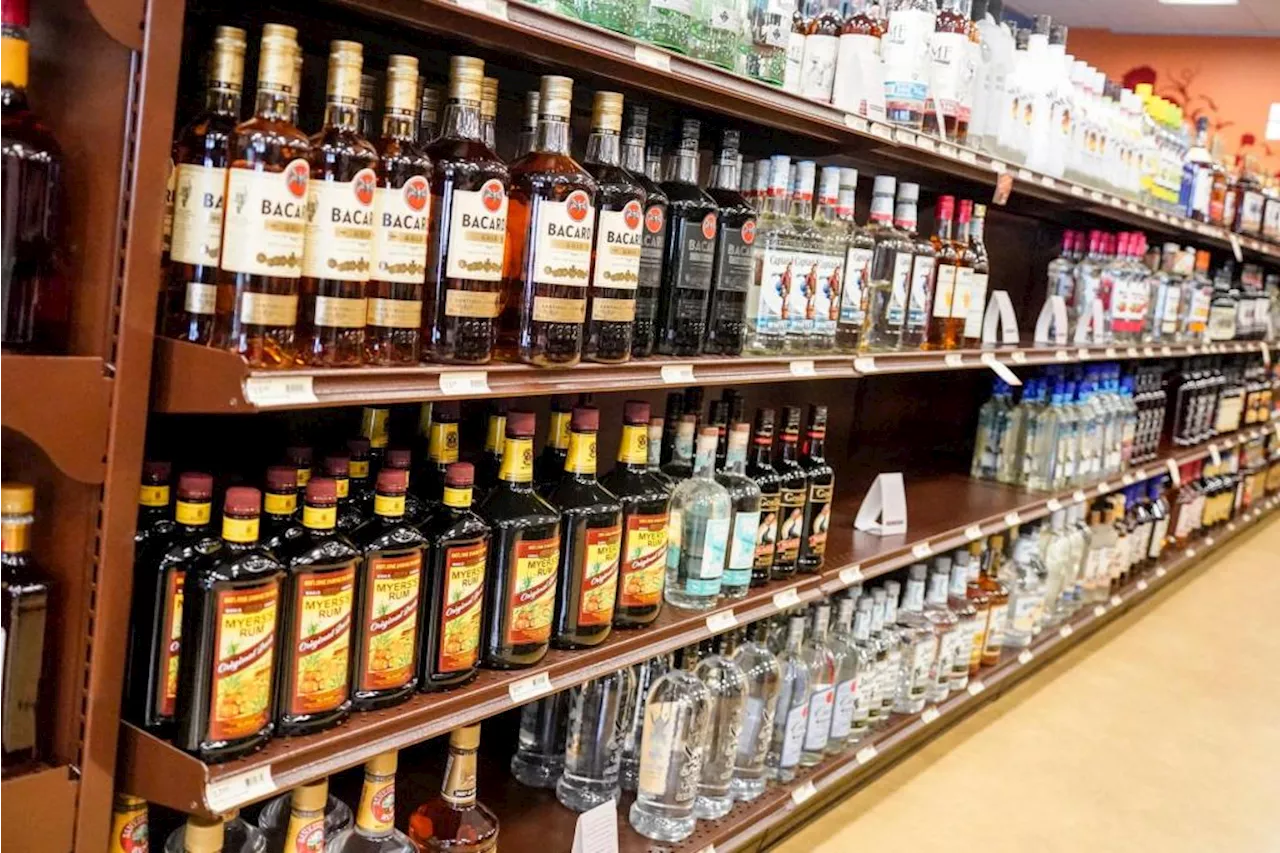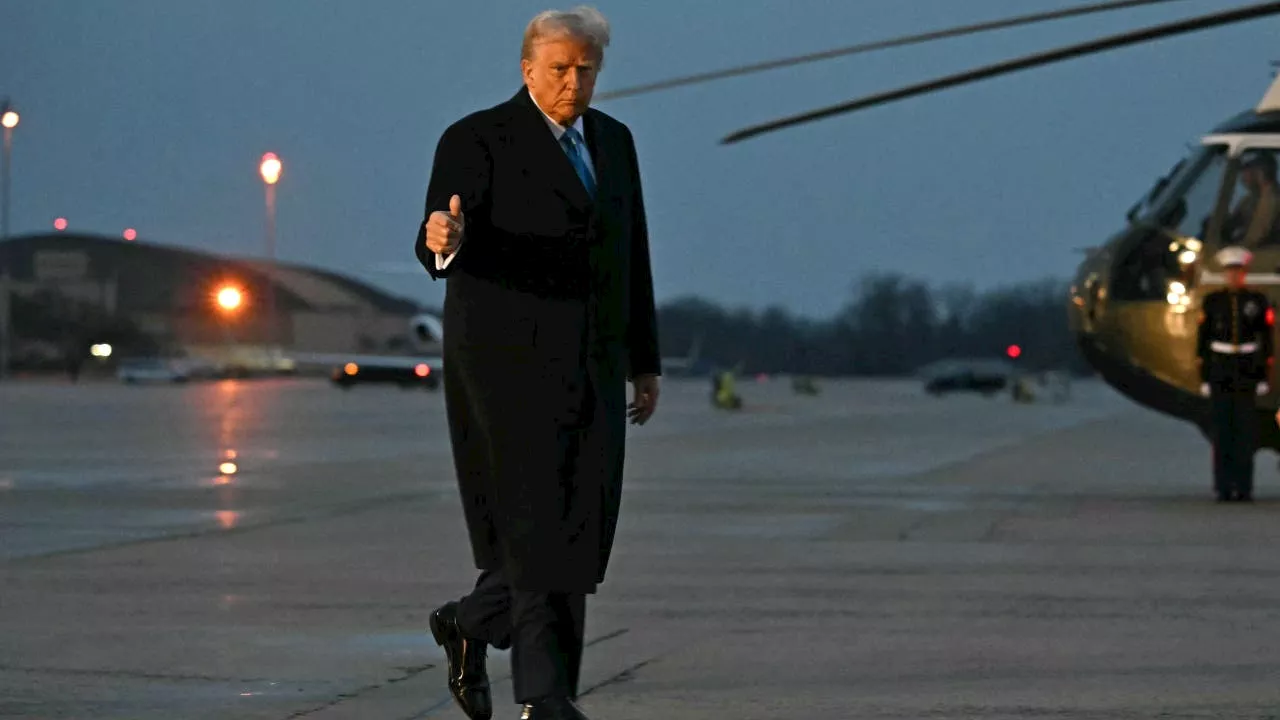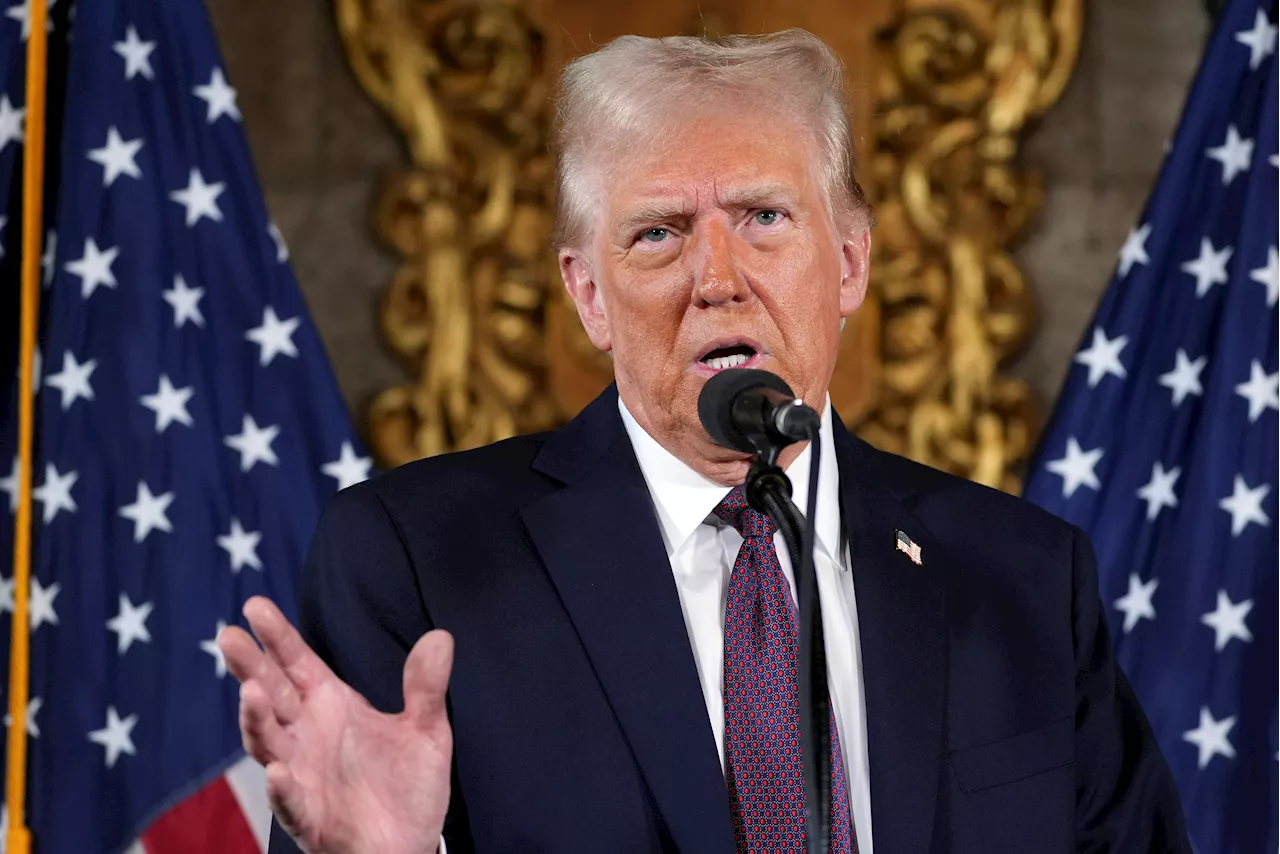President Trump's imposition of 25% tariffs on imports from Canada and Mexico, along with a 10% tariff on Chinese goods, has triggered swift retaliation from North American allies and raised concerns about a potential global economic downturn. Trump justified the move as necessary to protect American interests and stem the flow of fentanyl and illegal immigration, but the tariffs are expected to fuel inflation and disrupt trade flows.
Trump has imposed 25% tariffs on imports from Canada and Mexico, excluding oil, which will have a 10% tariff, along with a 10% tariff on imports from China, drawing swift retaliation and an undeniable sense of betrayal from the country's North American neighbors as a trade war erupted among the longtime allies.
The Republican president posted on social media that the tariffs were necessary “to protect Americans,' pressing the three nations to do more to curb the manufacture and export of illicit fentanyl and for Canada and Mexico to reduce illegal immigration into the U.S.The tariffs, if sustained, could cause inflation to significantly worsen, threatening the trust that many voters placed in Trump to lower the prices of groceries, gasoline, housing, autos and other goods as he promised. They also risked throwing the global economy and Trump’s political mandate into turmoil just two weeks into his second term. Trump declared an economic emergency in order to place duties of 10% on all imports from China and 25% on imports from Mexico and Canada. Energy imported from Canada, including oil, natural gas and electricity, would be taxed at a 10% rate. Trump’s order includes a mechanism to escalate the rates charged by the U.S. against retaliation by the other countries, raising the specter of an even more severe economic disruption. “The actions taken today by the White House split us apart instead of bringing us together,” Canadian Prime Minister Justin Trudeau said in a somber tone as he announced that his country would put matching 25% tariffs on up to $155 billion in U.S. imports, including alcohol and fruit.He channeled the betrayal that many Canadians are feeling, reminding Americans that Canadian troops fought alongside them in Afghanistan and helped respond to myriad crises from wildfires in California to Hurricane Katrina.Mexico’s president also ordered retaliatory tariffs. China did not immediately respond to Trump’s action. 'We categorically reject the White House’s slander that the Mexican government has alliances with criminal organizations, as well as any intention of meddling in our territory,” Mexican President Claudia Sheinbaum wrote in a post on X while saying she had instructed her economy secretary to implement a response that includes retaliatory tariffs and other measures in defense of Mexico’s interests. Feeling out of the loop? We'll catch you up on the Chicago news you need to know. Sign up for the weekly “If the United States government and its agencies wanted to address the serious fentanyl consumption in their country, they could fight the sale of drugs on the streets of their major cities, which they don’t do and the laundering of money that this illegal activity generates that has done so much harm to its population.” The premier of the Canadian province of British Columbia, David Eby, specifically called on residents to stop buying liquor from U.S. “red” states and said it was removing American alcohol brands from government store shelves as a response to the tariffs. “We are going to follow the process, evaluate all of these individuals that are in our country, including the Venezuelans that are here and members of Tren de Aragua,” said the secretary of Homeland Security Kristi Noem on Fox News. The tariffs will go into effect on Tuesday, setting up a showdown in North America that could potentially sabotage economic growth. A new analysis by the Budget Lab at Yale laid out the possible damage to the U.S. economy, saying the average household would lose the equivalent of $1,170 in income from the taxes. Economic growth would slow and inflation would worsen — and the situation could be even worse with retaliation from other countries.“You’re worried about grocery prices. Don’s raising prices with his tariffs,” Senate Democratic leader Chuck Schumer of New York wrote in a series of posts on X. “You’re worried about tomato prices. Wait till Trump’s Mexico tariffs raise your tomato prices,” read another. “You’re worried about car prices. Wait till Trump’s Canada tariffs raise your car prices,” read another. A senior U.S. administration official, speaking on condition of anonymity to brief reporters, said the lower rate on energy reflected a desire to minimize disruptive increases on the price of gasoline or utilities. That's a sign White House officials understand the gamble they're taking on inflation. Price spikes under former President Joe Biden led to voter frustration that helped return Trump to the White House. The order signed by Trump contained no mechanism for granting exceptions, the official said, a possible blow to homebuilders who rely on Canadian lumber as well as farmers, automakers and other industries. The official did not provide specific benchmarks that could be met to lift the new tariffs, saying only that the best measure would be fewer Americans dying from fentanyl addictio
Economics International Relations TRUMP TARIFFS CANADA MEXICO CHINA TRADE WAR RETALIATION ECONOMY INFLATION FENTANYL IMMIGRATION
United States Latest News, United States Headlines
Similar News:You can also read news stories similar to this one that we have collected from other news sources.
 Trump's Tariffs Threaten to Shatter US-Canada-Mexico Trade and Impact American ConsumersPresident Trump's planned tariffs on Canadian and Mexican imports could significantly disrupt trade relations and impact American consumers across various sectors, including automobiles, energy, and agriculture.
Trump's Tariffs Threaten to Shatter US-Canada-Mexico Trade and Impact American ConsumersPresident Trump's planned tariffs on Canadian and Mexican imports could significantly disrupt trade relations and impact American consumers across various sectors, including automobiles, energy, and agriculture.
Read more »
 Trump Threatens 25% Tariffs on Canada and Mexico, Rattling North American TradePresident Trump's potential plan to impose a 25% tax on imports from Canada and Mexico could significantly impact various sectors, from fuel and automobiles to consumer goods. The move threatens to destabilize the USMCA trade agreement, which Trump himself negotiated. While Trump argues the tariffs aim to curb the flow of illegal migrants, experts believe they are also a tactic to pressure Canada and Mexico into accepting US demands for trade agreement revisions. The tariffs could lead to a 'Tariff Winter,' freezing the North American economy.
Trump Threatens 25% Tariffs on Canada and Mexico, Rattling North American TradePresident Trump's potential plan to impose a 25% tax on imports from Canada and Mexico could significantly impact various sectors, from fuel and automobiles to consumer goods. The move threatens to destabilize the USMCA trade agreement, which Trump himself negotiated. While Trump argues the tariffs aim to curb the flow of illegal migrants, experts believe they are also a tactic to pressure Canada and Mexico into accepting US demands for trade agreement revisions. The tariffs could lead to a 'Tariff Winter,' freezing the North American economy.
Read more »
 Trump Imposes Tariffs on Mexico and Canada, Rattling North American TradePresident Trump signed an order Saturday imposing steep tariffs on imports from Mexico and Canada, reversing the trade agreement he himself negotiated. This move aims to address illegal immigration and fentanyl smuggling but experts warn of potential economic fallout.
Trump Imposes Tariffs on Mexico and Canada, Rattling North American TradePresident Trump signed an order Saturday imposing steep tariffs on imports from Mexico and Canada, reversing the trade agreement he himself negotiated. This move aims to address illegal immigration and fentanyl smuggling but experts warn of potential economic fallout.
Read more »
 Trump puts tariffs on Canada, Mexico and China, spurring trade war as North American allies respondTrump declared an economic emergency in order to place duties of 10% on all imports from China and 25% on imports from Mexico and Canada.
Trump puts tariffs on Canada, Mexico and China, spurring trade war as North American allies respondTrump declared an economic emergency in order to place duties of 10% on all imports from China and 25% on imports from Mexico and Canada.
Read more »
 Trump Threatens Tariffs on Canada, Mexico, and Plans to Rename Gulf of MexicoPresident-elect Donald Trump announced plans for 'very serious tariffs' against Canada and Mexico, citing illegal immigration and drug trafficking. He also declared his intention to rename the Gulf of Mexico to the 'Gulf of America'.
Trump Threatens Tariffs on Canada, Mexico, and Plans to Rename Gulf of MexicoPresident-elect Donald Trump announced plans for 'very serious tariffs' against Canada and Mexico, citing illegal immigration and drug trafficking. He also declared his intention to rename the Gulf of Mexico to the 'Gulf of America'.
Read more »
 Tariffs on China, Canada, and Mexico: Impact on American FarmersEconomists warn of potential economic repercussions from new tariffs on goods from China, Canada, and Mexico. John Boyd, Founder and President of the National Black Farmers Association, discusses the implications for the farming industry, emphasizing the risk of retaliatory trade wars and labor shortages.
Tariffs on China, Canada, and Mexico: Impact on American FarmersEconomists warn of potential economic repercussions from new tariffs on goods from China, Canada, and Mexico. John Boyd, Founder and President of the National Black Farmers Association, discusses the implications for the farming industry, emphasizing the risk of retaliatory trade wars and labor shortages.
Read more »
